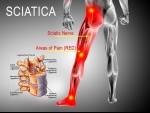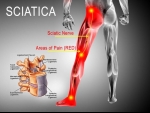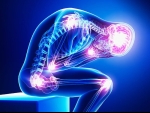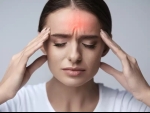Home » Blog
| Stem Cell, PRP, Acupuncture in Queens & Long Island, New York
Blog | Stem Cell, PRP, Acupuncture in Queens & Long Island, New York
Back Pain Specialists Are Ready to Help - The discs in our spine help keep the vertebrae steady and absorb shock. Over time, these discs wear down, which can cause persistent pain in the back or neck. This typically occurs between the ages of 30 and 60. If you are suffering from back pain, you’re likely having trouble living your day-to-day life without interruption. Thankfully, solutions are available. Disc-related back pain is a very common problem and it can often be treated without surgery.
Read more
Posted on: 12-Apr-2021 | No of views: 3635
With each passing year, it may seem like your list of aches and pains continues to grow with no end in sight. Perhaps that old knee injury rears its ugly head or new problems develop as your joints succumb to years of wear-and-tear. The truth is that aging presents considerable physical challenges, and back pain is one of the chief complaints. While its development may be somewhat normal, we don’t believe that living with back pain should be part of your new normal.
Read more
When your back muscle fibers become overstretched or torn called a back muscle strain your body’s natural response is to initiate an inflammatory cascade that causes swelling and may be accompanied by painful spasms. Quick treatment may help reduce symptoms and speed recovery. Here’s how: Stop What You’re Doing - When your back pain suddenly flares up, discontinue the physical activity that you’re doing. It is important to protect your lower back from further injury. Don’t push through your workout or continue to do chores around the house. Overusing a strained back muscle may worsen the damage and delay the recovery.
Read more
Degenerative Disc Disease (DDD) is the weakening and breakdown of one or more vertebral discs, a structure that sits between the bones in the spine to provide cushioning and allow movement between the spine levels. This condition can develop as a natural part of the aging process, but it may also result from injury. Even though “disease” is in the name, this process is local wear and tear of the spine and is not a part of a systemic illness. DDD most often occurs in the low back, or lumbar spine, but can affect the neck and mid-back as well.
Read more
While life may be full of coincidences, we don’t believe that the general weight problem and the high incidence of sciatica pain is one of them. To be sure, weight isn’t the only risk factor when it comes to this type of back pain, but it can certainly play a role. We help our clients find solutions for both acute and chronic pain, helping them lead active lives. And when it comes to lower back pain, sciatica is one of the more common complaints we treat. In an effort to promote preventive care, we want to partner with our patients through education, giving them the tools, they need to avoid back pain in the first place.
Read more
The constant soreness or intermittent discomfort of sciatica can range from a warm, wet feeling in your thigh to shooting and searing pain along your leg. The symptoms may strike anytime, so it is a smart idea to have a treatment plan in place. Read on to learn about 4 commonly overlooked and easy remedies that may help you find quick relief...
Read more
Abnormal Pain That Extends Beyond the Expected Period of Healing - Chronic pain is an enormous problem in the United States, costing millions in lost workdays and decreased efficiency. Chronic pain causes local or widespread pain that remains long after a person recovers from an illness or injury. Unlike short-term pain, chronic pain is abnormal and is considered a disease in itself. If you are one of 100 million Americans who suffer from chronic pain, a pain specialist can treat your pain and help you regain control over your life.
Read more
Migraines affect 1 in 4 households in the United States, and nearly 4 million sufferers are considered chronic, which means they have a whopping 15 migraines a month. These eye-opening numbers get more sobering still if you consider that every 10 seconds, head pain drives someone to an emergency room throughout the country. In the face of these staggering statistics, it makes sense to discuss ways to avoid migraines altogether, which is our goal here.
Read more
Pain in the upper and/or middle back can be quite limiting and interfere with daily activities. To help alleviate this pain, consider stretching and strengthening the muscles that support your thoracic spine (upper and mid-back). Here are 5 common exercises to try.
Press-Up Exercise - This press-up or back extension exercise targets your back extensor muscles, which are attached to the back of your spine.
Read more
Pain due to arthritis, trauma, or degeneration that affects the spine and surrounding tissues - The spine is a vital structure that supports the body while providing enough flexibility for movement. The spine is divided into the neck (cervical area), middle back (thoracic area), and lower back (lumbar area). Areas that sustain a lot of twisting and bending, such as the lower back, are most likely to get injured. It is estimated that 80% of the population will have lower back pain, or lumbago, in their lifetime.
Read more
Love this Post? Spread the World






















